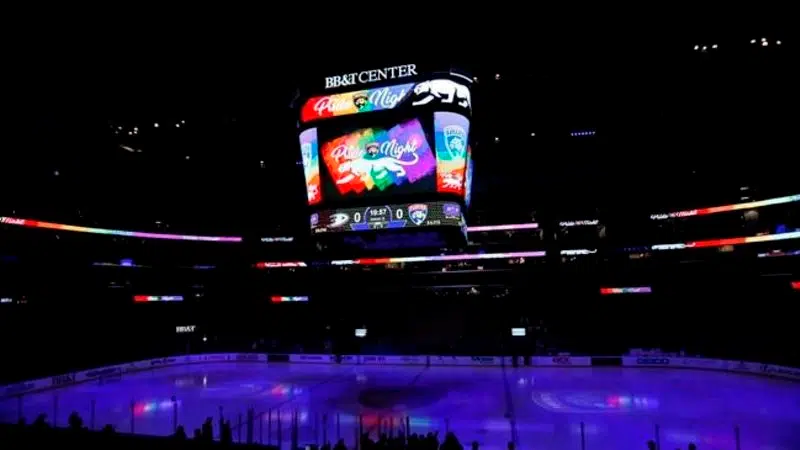
Homophobia study shows perception, reality “disconnect”
Researchers say a survey of players in the Australian Ice Hockey League shows homophobic language is often used but that an even higher percentage of competitors would make a gay player feel welcome.
It’s an apparent contradiction the researchers call a “disconnect between perception and reality” because anti-gay comments can often be a cultural norm.
The study, conducted by the Behavioral Sciences department at Monash University in Melbourne and released Thursday, surveyed 146 players from 11 countries who play in the semi-professional league, including 56% from Australia, 25% from the U.S. and Canada, and about 12% from Europe.
More than 98% of the league’s players completed the survey that examined why homophobic behaviour is common and whether education and approaches like the Pride Games in professional sports league are helping. The NHL has sponsored “Hockey Is for Everyone” events at games throughout the league, and all 31 teams now host Pride Nights.
